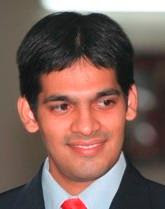
The verdict is finally out on India’s most long-drawn trial, ‘The 93 Mumbai bomb blasts case’; and of all the acquitted and convicted, possibly the most celebrated, hyped and covered by media of all the accused, was Munnabhai Sanjay Dutt. He has been sentenced to six years’ rigorous imprisonment. There have been loud cries from his colleagues in Bollywood and his fans world over, about the ruling. They believe that he is innocent and six years’ imprisonment is too harsh a sentence for carrying a mass destruction weapon by an adult. Ever since the judgment (and even before the judgment day), TV channels have been airing the sympathetic reactions of the common Indian man for Sanjay Dutt. Fair enough, we are the largest democracy in the world and every one of us has a right to express our opinions about everything happening in the country. That, I think, is the downside of living in an uncontrolled democracy. Reserved and narrow-minded as it may sound, I think too much pressure was being put on to the judiciary system by portraying the sympathies of common Indian man in every possible way and through every possible means in Sanjay Dutt’s case. What we should understand is that democracy lets you express your opinions but this expression should be used with utmost care and responsibility; and now, in this flat world, more than ever, where opinion of common man counts.
It is a paradox, how we fail to understand in today’s world of specialization that it is not us but the judiciary system that is specialized in the skill of judgment. I am not saying that we should tight shut our lips even if we feel strongly against a decision, but converging general opinion to pressurize the judicial mechanism (especially by media) is unfair. We do not rely on general public opinion when deciding the monetary policy, the intricate details of our nuclear deal with US; because we know that there are people who understand these fields much better than we do. We cannot take every Indian’s opinion while we take policy decisions on important things like these.
Should a democracy not count on its people for the course of its direction then? Obviously it should. But we need to modify the phrase ‘where every opinion counts…’ a little to ‘where every sensible opinion counts…’. Audiovisual media, I think, is anything but sensible these days and deserves a control on its content. It may sound undemocratic, but I think, it is fair to say that control should be imposed on those who fail to understand their role and responsibilities in a true democracy like it is imposed on a criminal.
It is a fine line, between controlling public opinions and suppressing them. But that’s what separates a democracy from a successful one.
It is a paradox, how we fail to understand in today’s world of specialization that it is not us but the judiciary system that is specialized in the skill of judgment. I am not saying that we should tight shut our lips even if we feel strongly against a decision, but converging general opinion to pressurize the judicial mechanism (especially by media) is unfair. We do not rely on general public opinion when deciding the monetary policy, the intricate details of our nuclear deal with US; because we know that there are people who understand these fields much better than we do. We cannot take every Indian’s opinion while we take policy decisions on important things like these.
Should a democracy not count on its people for the course of its direction then? Obviously it should. But we need to modify the phrase ‘where every opinion counts…’ a little to ‘where every sensible opinion counts…’. Audiovisual media, I think, is anything but sensible these days and deserves a control on its content. It may sound undemocratic, but I think, it is fair to say that control should be imposed on those who fail to understand their role and responsibilities in a true democracy like it is imposed on a criminal.
It is a fine line, between controlling public opinions and suppressing them. But that’s what separates a democracy from a successful one.

